The Origins and Development of Professional Football, 1890-1920
BücherAngebote / Angebote:
Evolving from English rugby, American football flourished in two arenas of late 19th-century America: eastern colleges and amateur athletic clubs. Members of both groups opposed professionalism in athletics, but in western Pennsylvania intense rivalries between athletic clubs evoked a desire for victory so strong it overcame the amateur ideal. The Allegheny Athletic Club secretly paid "Pudge" Heffelfinger $500 in 1892 to play against its arch rival, the Pittsburgh Athletic club. Soon other athletic clubs hired athletes regularly, and pro football was on its way In small towns, pro football evoked civic pride in communities that were rapidly losing their identities in the new industrial society. As local teams became symbols of a community's worth, winning became essential, accelerating the development of professionalism in the gameThe Canton Bulldogs' signing of Olympic hero Jim Thorpe garnered much attention and signaled the beginning of accelerated growth. However, the problems plaguing pro football-low attendance and gate receipts, relatively high salaries, and rumors of corruption-were difficult to solve without organization. By 1920 managers of fourteen professional squads formed the loosely structured American Professional Football Association. The APFA, however, solved little because of a lack of leadership and financing. By 1922 the APFA came under the dynamic leadership of Joseph Carr, changed its name to the National Football League, and the rest is history.
Lieferzeit unbestimmt. Kontaktieren Sie uns für genauere Infos




